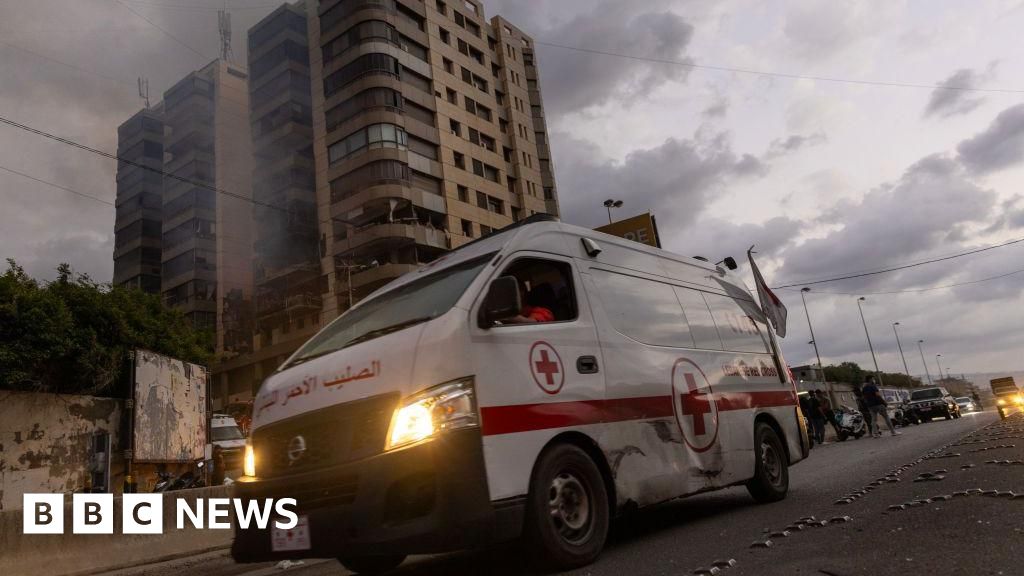The Crisis in Lebanese Healthcare Amid Ongoing Conflict
The ongoing conflict in Lebanon has taken a devastating toll on the country’s healthcare system, with recent Israeli airstrikes leading to the closure of multiple hospitals and the tragic loss of medical personnel. As the situation escalates, the implications for public health and safety are dire, raising urgent questions about the protection of healthcare workers and facilities in conflict zones.
Hospital Closures and Strikes
On a recent Friday, at least four hospitals in Lebanon announced their suspension of operations due to the relentless Israeli strikes. This marked a grim milestone in a two-week period during which Israeli forces targeted healthcare facilities, resulting in the closure of at least 37 hospitals and the deaths of numerous medical staff, as reported by the World Health Organization (WHO). The closures have left many communities without access to essential medical services, exacerbating an already critical humanitarian crisis.
Dr. Mounes Kalakish, director of the Marjayoun governmental hospital, recounted the harrowing experience of his facility being struck directly. An airstrike hit two ambulances at the hospital’s entrance, killing seven paramedics and forcing the hospital to close its doors. "The nurses and doctors were terrified," Dr. Kalakish stated, highlighting the fear and chaos that has gripped healthcare workers in the region.
Impact on Medical Personnel
The toll on healthcare workers has been staggering. Reports indicate that 11 paramedics were killed within a 24-hour period, with the WHO confirming that 28 healthcare workers lost their lives in just one day. The situation has led many medical professionals to either flee for their safety or refrain from reporting to work, further crippling the healthcare system.
Dr. Shoshana Mazraani, the emergency director at Marjayoun hospital, described the dire circumstances faced by her team. With only 20 doctors remaining from a usual staff of 120, the hospital’s closure represents a significant loss for the region. "We serve a huge population here, many villages," she lamented, emphasizing the critical services that are now unavailable to those in need.
The Role of International Organizations
International organizations, including the Lebanese Red Cross and the WHO, have condemned the attacks on healthcare facilities and personnel. Gabriel Karlsson, the British Red Cross country manager in Beirut, stressed the importance of protecting health and aid workers, stating, "Teams from the Red Cross and Red Crescent are a lifeline, supporting communities tirelessly – they must be protected."
The WHO’s director-general, Tedros Adhanom Ghebreyesus, has called attention to the urgent need for the protection of healthcare workers, emphasizing that they must be able to operate without fearing for their safety. The ongoing violence has not only resulted in loss of life but has also severely hindered the ability of healthcare systems to respond to the needs of the population.
The Broader Humanitarian Crisis
The strikes on healthcare facilities are part of a broader humanitarian crisis unfolding in Lebanon. The conflict has led to widespread displacement, destruction of infrastructure, and a significant increase in the number of people requiring medical assistance. Hospitals that remain operational are struggling to provide care under increasingly dangerous conditions, with many facilities reporting damage from nearby strikes.
For instance, the Salah Ghandour hospital in Bint Jbeil announced its closure after being "violently shelled," following an Israeli army order to evacuate. The Israeli military claimed the strikes targeted a mosque allegedly used by Hezbollah fighters, illustrating the complex and often tragic interplay between military objectives and civilian safety.
Conclusion
The situation in Lebanon serves as a stark reminder of the vulnerabilities faced by healthcare systems in conflict zones. As hospitals close and healthcare workers are killed or forced to flee, the implications for public health are profound. The international community must prioritize the protection of healthcare facilities and personnel, ensuring that they can continue to provide essential services to those in need. Without immediate action, the humanitarian crisis in Lebanon is likely to deepen, with devastating consequences for the population.


